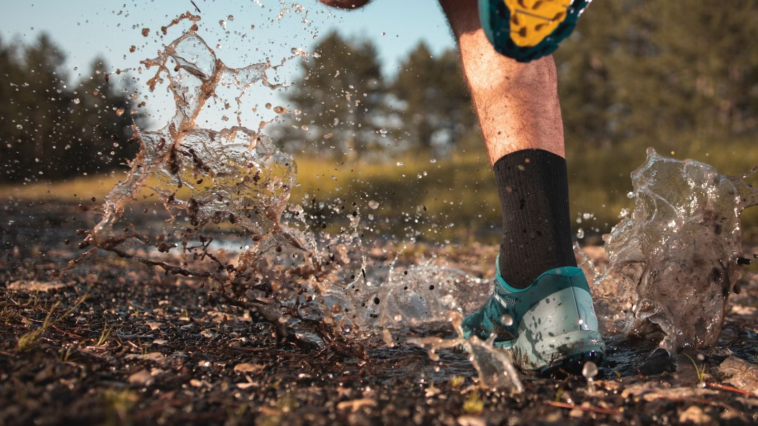If you’re interested in hiking the trails, you should invest in an excellent pair of running shoes. You will not only save your usual running shoes, but you will also be safer on your trail runs.
So, what is the distinction between road running shoes and trail running shoes? This essay will tell you everything you need to know about the controversy between trail running shoes and running shoes.
What Is the Difference Between Road Running Shoes and Trail Running Shoes?
While it’s tempting to dismiss trail shoes vs. running shoes as merely having different styles and aesthetics, the truth is that both shoe kinds are built for very distinct reasons.
It’s preferable to consider road running shoes vs. trail running shoes in the same manner that you would consider road bikes vs. mountain bikes or summer tyres vs. winter tyres. The primary distinctions between road and trail running shoes are durability, traction, and protection.
Trail running shoes are built to withstand attacks from the environment. Trail shoe materials are more resistant to rips, tears, abrasions, and other damage from rocks and sharp surfaces than materials used in traditional road running shoes.
READ ALSO : No changes in ODI World Cup 2023 schedule: BCCI
Of course, all of these tough materials are heavier and stiffer than what you’d find in a nice pair of running shoes. However, when you discover all of the wonderful benefits of trail running, you’ll quickly adjust to the extra weight.
Traction
Many trail running shoes have stickier rubber bottoms that are better at grasping slick ground. And everyone who enjoys trail running or hiking knows that even in excellent weather, pathways may be slick. Even the most seasoned runner can be slowed by dew, fog, streams, and residual ice.
Trail shoes also have deeper treads than road running shoes, which allows for a better grip on slick surfaces. This facilitates turning and helps many trail runners feel more confident during their workouts.
The trail running vs. road running shoe debate is obviously in favour of trail shoes when it comes to managing perilous circumstances like mud and slippery rocks.
Protection
Aside from having more durable materials in general, many trail running shoes have distinct characteristics to protect you from tough terrain. Overlays in the top limit the possibility of a root or rock ripping through the fabric and getting to your foot.
In addition, if you run on very rocky trails, ensure sure your trail running shoes have a rock plate, which is a small piece of plastic that prevents sharp pebbles from penetrating the bottom of your shoes.
When Should You Purchase Trail Running Shoes?
Just because you’re ditching the pavement doesn’t always necessitate the purchase of specialised trail running shoes. If you intend to run on simple, hard-packed trails, such as those in a well-kept park or nature preserve, your regular road running shoes should suffice.
If you find yourself in any of the following scenarios, you might consider investing in a specific set of trail running shoes:
You’re jogging on steep, muddy, or snowy paths (in which case, you’ll also want to protect yourself from the cold).
You’re running on a single-track trail (only one person can pass at a time).
During your run, you must constantly look down at the ground to find your footing.
After a run, your road running shoes are obviously more worn and ripped.
In other words, trail-running shoes are created for challenging terrain that includes uneven ground, protruding rocks and roots, slick conditions, and other surprises that you wouldn’t find on man-made surfaces.
Can Trail Running Shoes Be Used on Pavement?
You realise why it’s not a good idea to wear road running shoes on the trail now that you know more about trail vs. road running shoes. But what about the other direction?
To summarise, if at all possible, avoid wearing trail running shoes on the road. That’s because all those fantastic off-road qualities, such as stickier rubber and deeper treads, aren’t designed for pavement and asphalt. The harder surfaces can quickly wear down the softer tread material, making your trail running shoes less efficient when you return to the dirt.
You’ll be fine if you come over asphalt or pavement on a longer trail run. If you intend to run on a lot of man-made surfaces, though, you should switch to a pair of road running shoes or all-terrain shoes.





